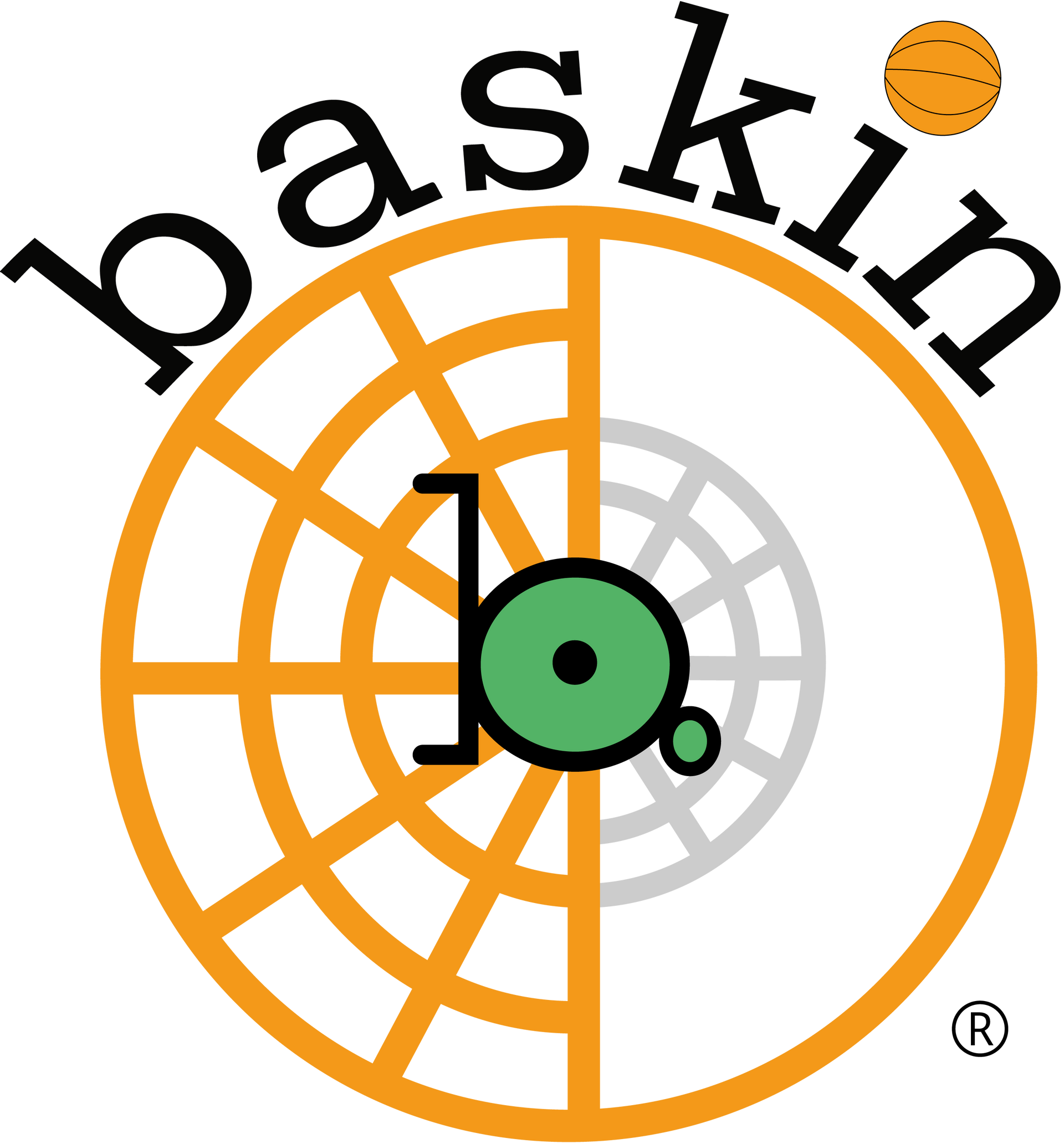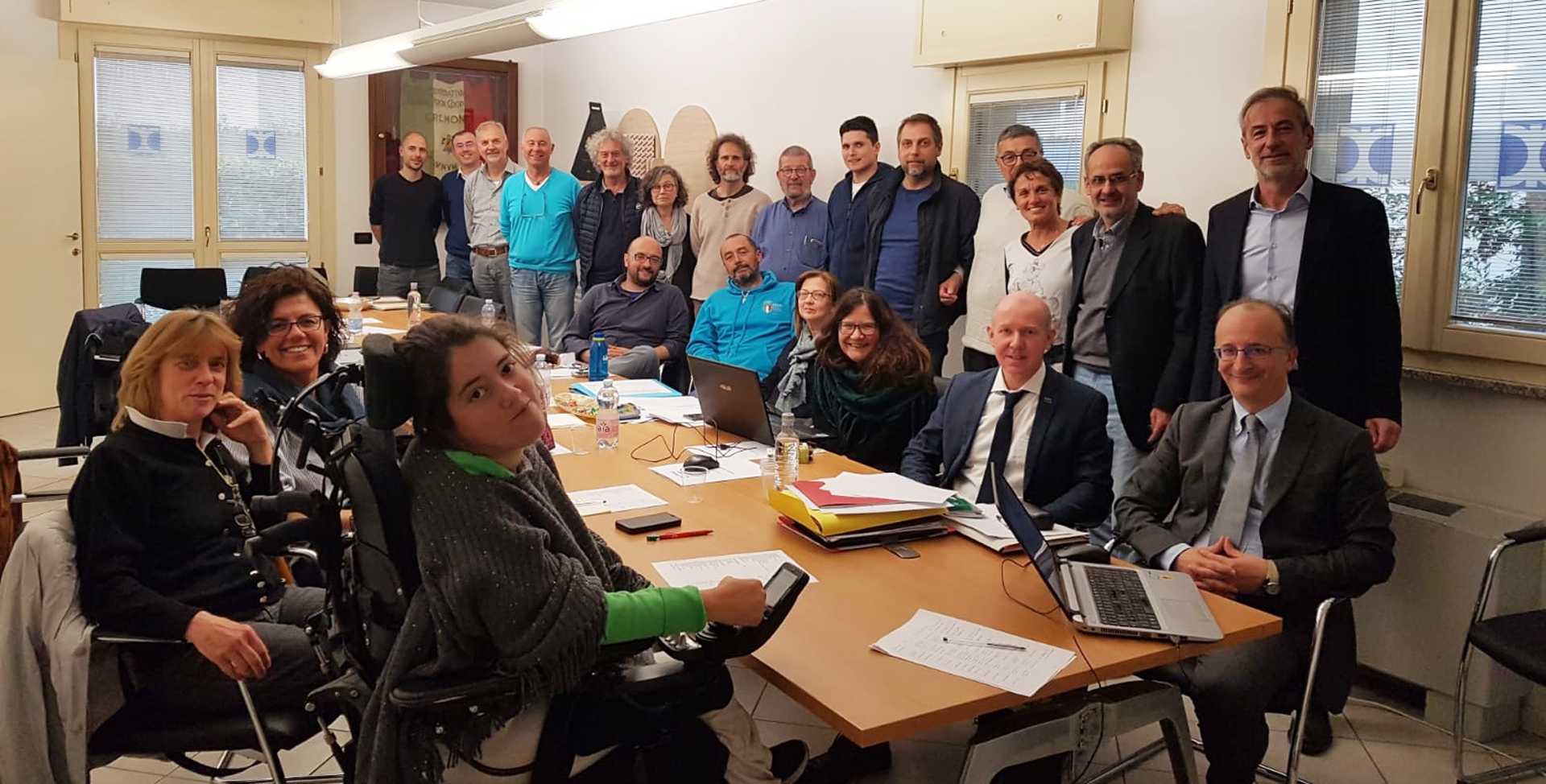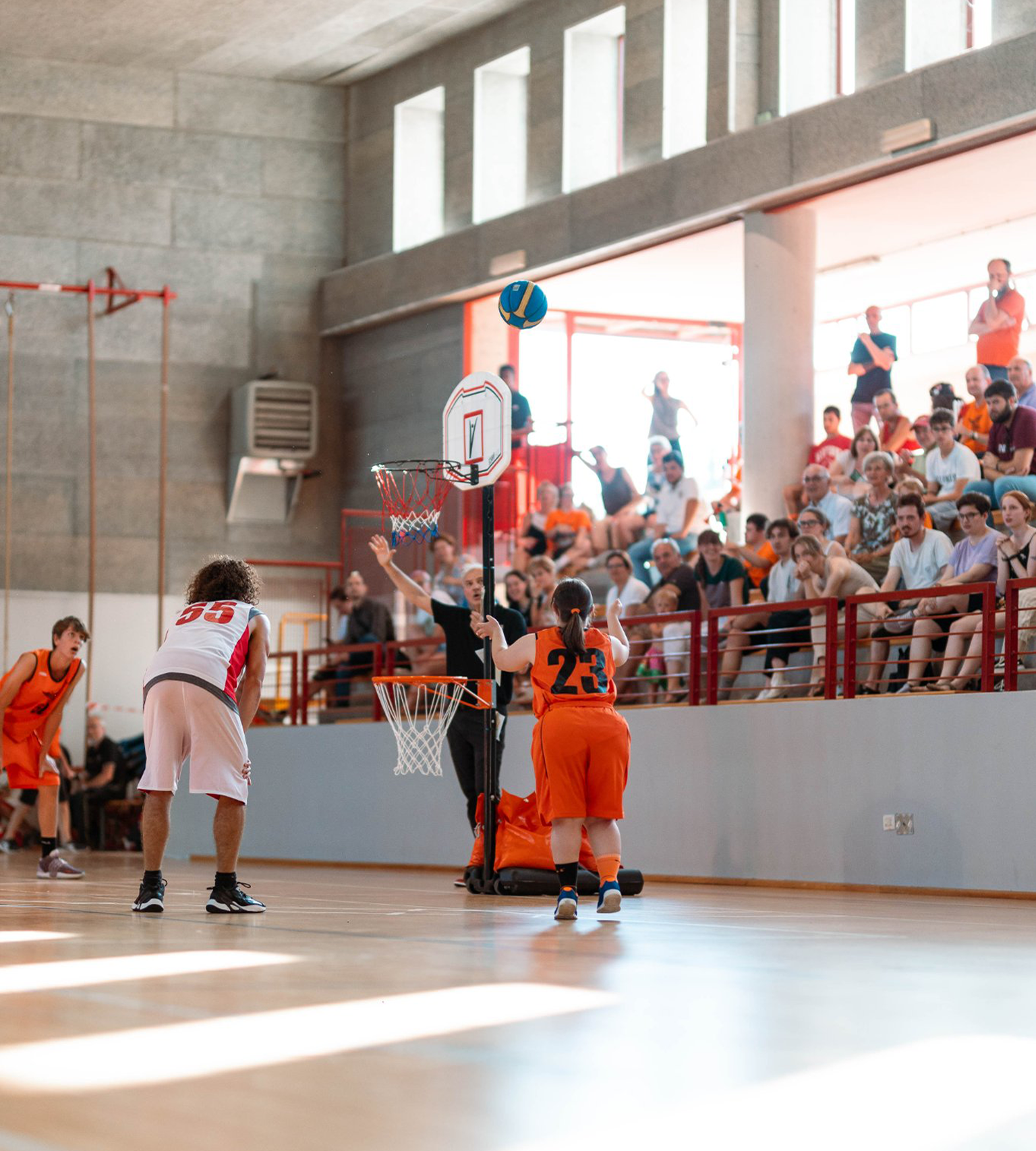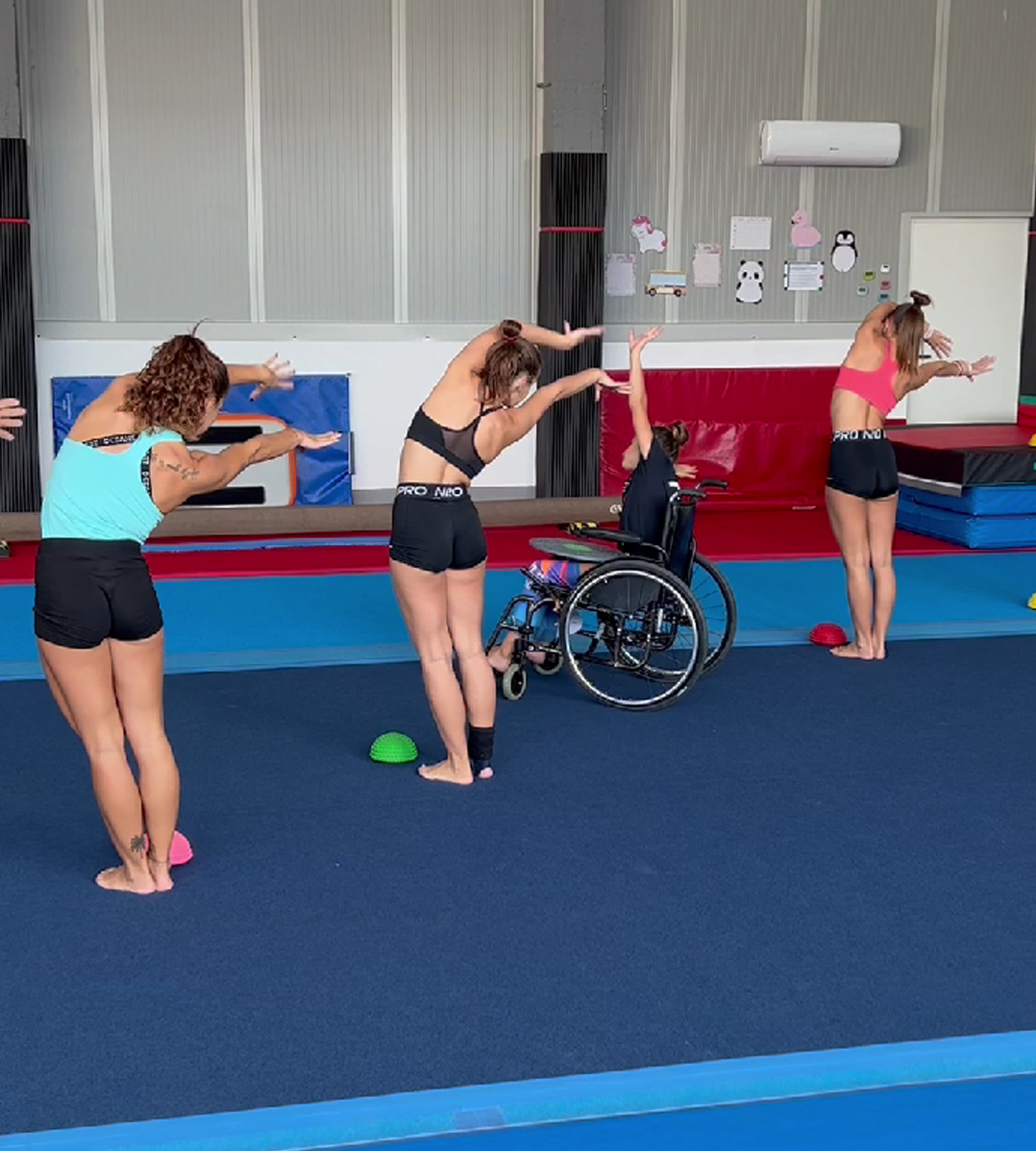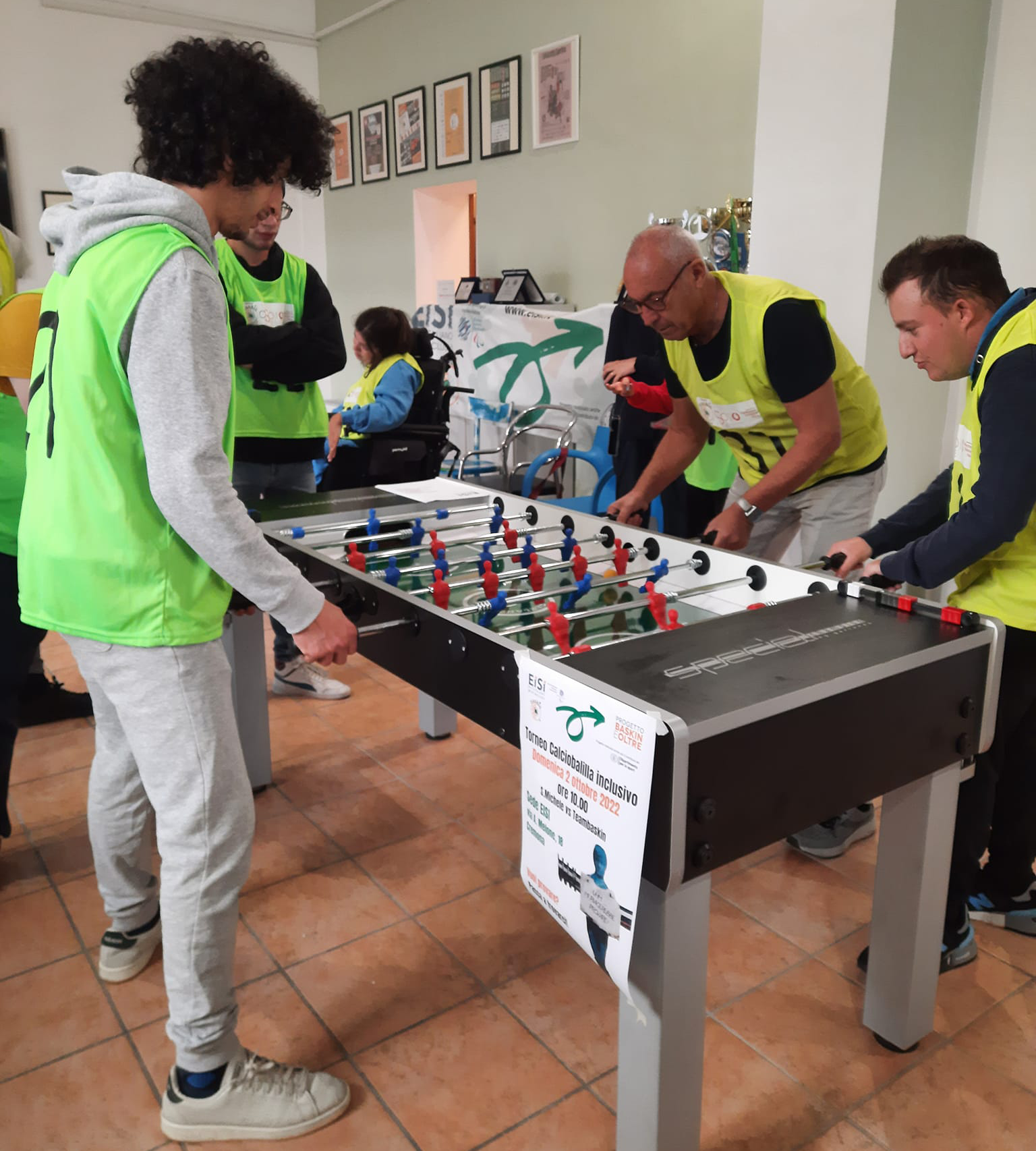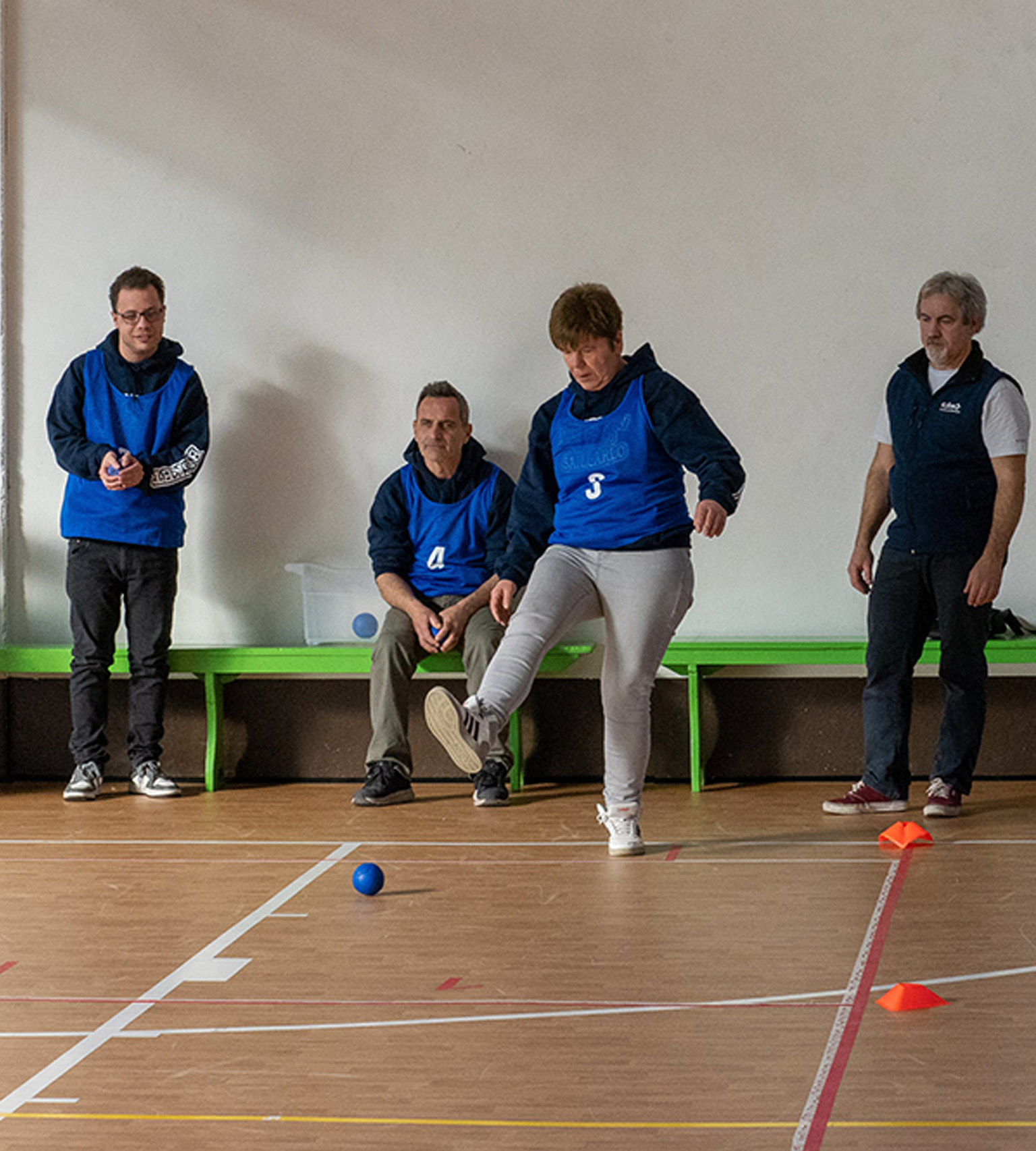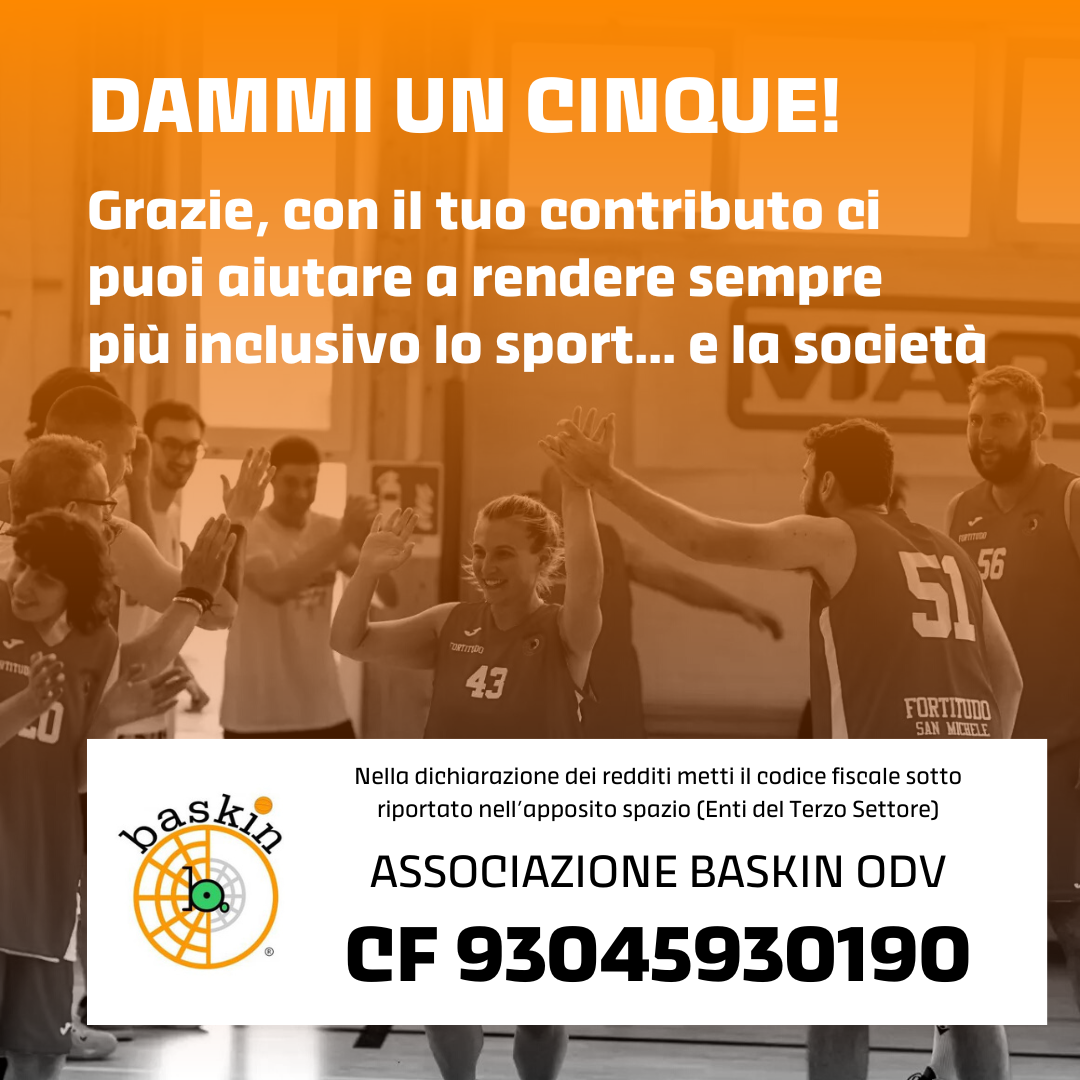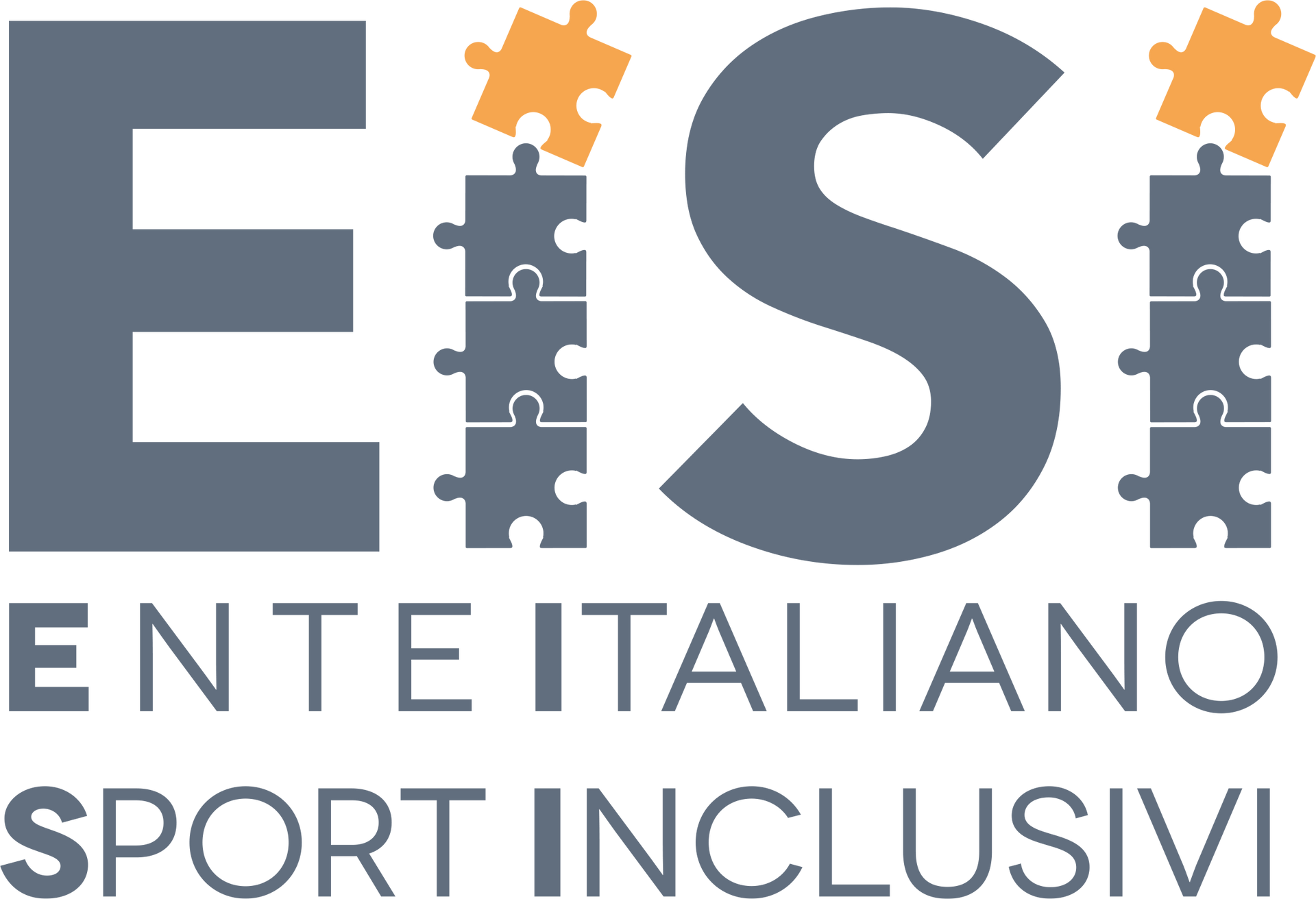
Baskin & EISI
On 15 May 2019, at the Confcooperative headquarters in Cremona, the ENSI - Ente Nazionale Sport Inclusivi was born. The incorporation operation took place according to the civil code and with a notarial deed, preceded by the demerger operation from the Baskin Association.
On 31 October 2019, following the documentation sent, ENSI was officially recognised as a Paralympic sports promotion body by the CIP (Italian Paralympic Committee).
It is the first national body for inclusive sports and is based outside Rome.
It originated about 20 years ago with the birth of Baskin, a sport that allows disabled (physical and mental) and able-bodied, male and female, to play together according to rules that are constantly evolving.
ENSI therefore originates from Baskin, but today it is an autonomous reality that has immediately
set up as a multidisciplinary reality and is open to all sports that will be recognised as sports designed for all. At the start-up, the disciplines present in ENSI are obviously Baskin, which is also quantitatively the most relevant and then Inclusive Gymnastics for All and Inclusive Table Football.
Regional contact persons were appointed in 15 regions to whom the territorial sections refer to for various activities. All this data was fundamental for recognition.
Inclusive sporting activities that will enter the EISI, and thus be recognised, will be able to benefit from the tax benefits provided by law for recognised Asd.
On 29 December 2020, in the presence of the notary, the Extraordinary Assembly was held that amended the statute and changed the name ENSI to EISI - Ente Italiano Sport Inclusivi.
On 11 March 2021, the elective Assembly was held online with the appointment of the new EISI Board of Directors, which, following the voting, resulted as follows: www.eisi.it
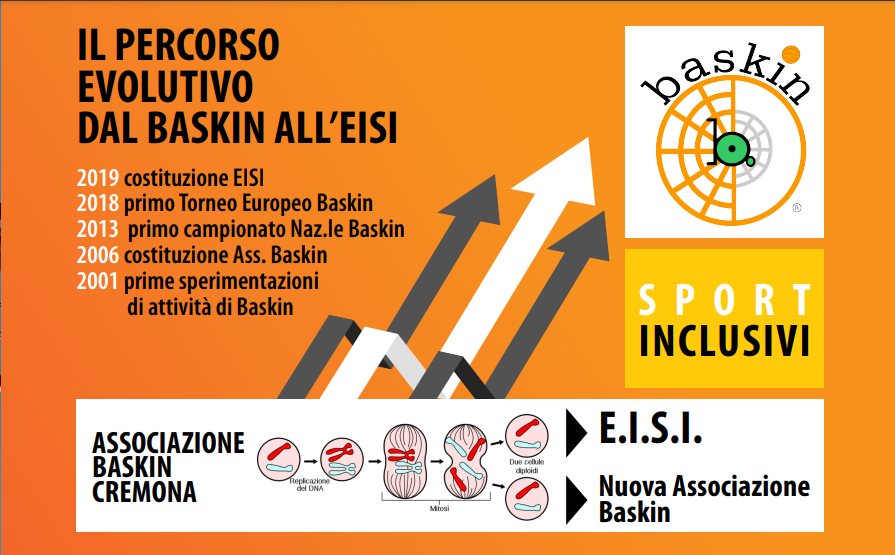
Headquarters
The national headquarters of the EISI is at Via Altobello Melone, 18/20 in Cremona, in sub-concession with the Baskin Association and the Giorgia Association from 4 December 2019.
Concept of INCLUSION
Inclusive sport is sport designed for everyone, i.e. for athletes with and without disabilities.
In the light of this principle, inclusion criteria are defined based first and foremost on the recognition of the different starting points in which athletes find themselves, and rules and structures are drawn up to allow everyone to be able to contribute actively to the game, giving dignity to each individual player.
Inclusive sport promoted by the EISI, through the disciplines that will be recognised, will thus be an instrument of acceptance, an opportunity for interculturality, social integration, equal opportunities and health.
Inclusive sports currently in the EISI
Nature of EISI
The Ente Italiano Sport Inclusivi (acronym EISI) is a Paralympic Sports Promotion Body (EPP) and is an apolitical and non-denominational Association, recognised according to articles 14 et seq. of the Civil Code for the pursuit, without profit, of civic, solidarity and socially useful purposes.
Normative references
[...] It is inspired, first and foremost, by the ideals of the Italian Constitution, as well as by the 2000 and 2007 EU Charter of Fundamental Rights, the 1989 UN Convention on the Rights of the Child, the 2006 UN Convention on the Rights of Persons with Disabilities, and the 2001 WHO International Classification of Functioning, Disability and Health.
In Italy, the reference standards are represented by Law 517/77 on the school integration of disabled pupils and Law 104/92 on the social integration of disabled people.
Purposes
Priority aims of the EISI are to promote an inclusive culture to defend human dignity, to foster moral and cultural elevation, to stimulate the maturation of a critical conscience and ethical discernment, and to encourage the exercise of responsibility in competitive activities, to incite convivial sociability, to improve the well-being and psychophysical condition of its members and of the human person in general.
It also aims, within the framework of its institutional purposes, to encourage the widest participation in the activities, as set out in Title III, without excluding anyone from this opportunity, guaranteeing this right to all and protecting a model of society that is truly open to the diversity of its members.


